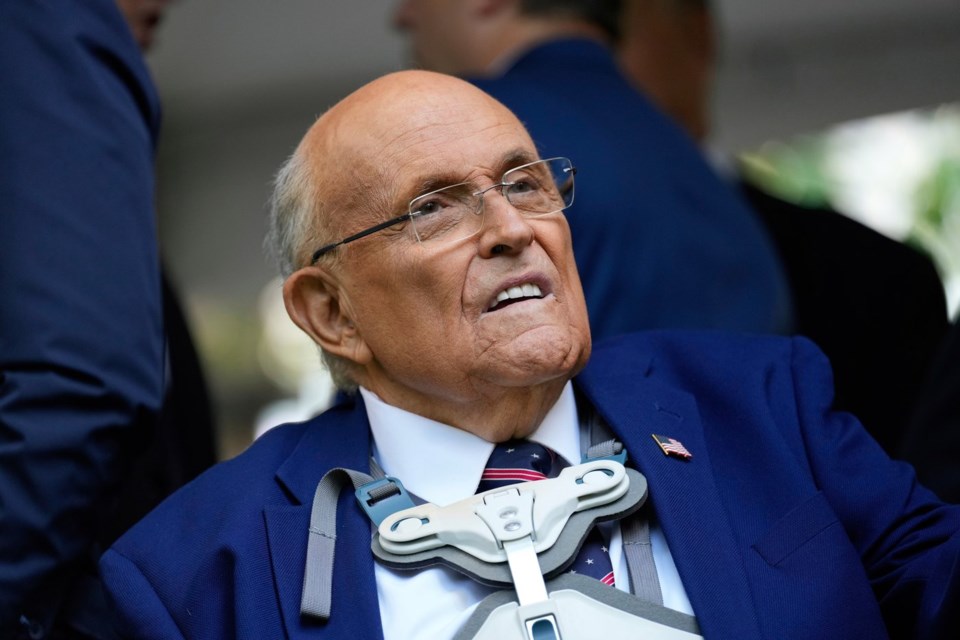Washington, D.C. — President Donald Trump has issued sweeping pardons to several of his closest allies — including former personal attorney Rudy Giuliani, former chief of staff Mark Meadows, and conservative lawyers Sidney Powell and John Eastman — for their roles in efforts to overturn the results of the 2020 U.S. presidential election, according to a Justice Department official.
The pardons were made public Sunday evening through a signed proclamation posted online by Ed Martin, the federal government’s pardon attorney. The document described the move as a “full, complete, and unconditional pardon” for all individuals named — while clarifying that the pardon does not apply to Trump himself.
Although the pardons cover only federal offenses, none of the individuals named were facing active federal charges related to the 2020 election. Still, the decision underscores Trump’s continuing efforts to recast the narrative of the election he lost to Democrat Joe Biden, portraying those charged in related cases as political victims rather than perpetrators of wrongdoing.
The proclamation characterized the prosecutions of Trump’s allies as “a grave national injustice perpetrated on the American people” and framed the pardons as part of “the process of national reconciliation.”
Pardons Include Fake Electors and High-Profile Trump Advisers
In addition to Giuliani, Meadows, Powell, and Eastman, the pardons extend to several Republican “fake electors” who were charged in state-level cases for submitting false electoral certificates in support of Trump, despite Biden’s certified victories in those states.
The White House has not responded to media inquiries about the timing or scope of the decision.
Ongoing Legal and Political Implications
The move comes as Trump begins his second term after defeating Vice President Kamala Harris in the 2025 presidential election. It follows his earlier mass pardons of hundreds of January 6th rioters, including individuals convicted of assaulting law enforcement during the attack on the U.S. Capitol.
Trump himself was previously indicted on federal felony charges by Special Counsel Jack Smith for allegedly conspiring to overturn the 2020 election results. That case was abandoned in November, following Trump’s return to office, in line with longstanding Department of Justice policy against prosecuting sitting presidents.
Legal experts say the new wave of pardons could further strain relationships between the federal government and state prosecutors still pursuing election-related cases. While federal pardons do not apply to state-level offenses, several of those named — including Giuliani and Meadows — have been facing ongoing state investigations that have since stalled or been dismissed.
In September, a Michigan judge dismissed charges against 15 Republicans accused of submitting false certificates declaring Trump the winner in that state. Similar cases in Georgia and Arizona remain under review but could now face additional challenges due to the broad language of the federal pardons.
Symbolism and Fallout
Critics argue that the move undermines accountability for those who attempted to subvert democratic processes, while supporters frame it as an act of forgiveness and political closure.
As Trump described in his proclamation, the pardons are meant to “close a dark chapter of political persecution” and “restore faith in the fairness of our institutions.”
The pardons are expected to intensify political debate in Washington, reigniting divisions over the legacy of the 2020 election and the limits of presidential power.

